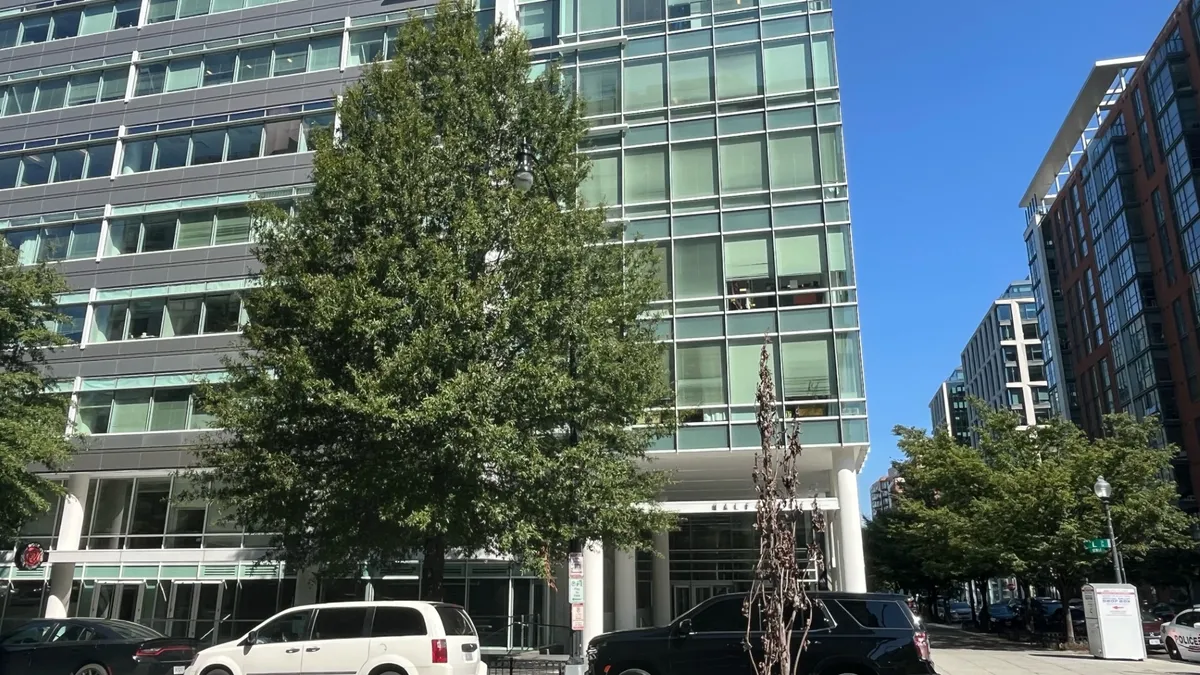As the median age in construction increases, jobsite experience becomes increasingly valuable.
Construction has faced a stark need for workers for years, and as experienced leaders retire, a portending brain drain threatens to impact the way contractors train and educate their employees.
David Frazier, CEO and owner of Nashville, Tennessee-based Hardaway Construction — a 108-employee firm focused on the multifamily sector — knows about the importance of leadership and a good training regimen. Frazier graduated from the U.S. Naval Academy in Annapolis, Maryland, in 1996, before he was stationed in Jacksonville, Florida, where he flew four-engine Lockheed P-3 Orion surveillance planes.
But when he entered civilian life in 2005, Frazier took his mechanical engineering degree into the private sector, where he still values the chain of command. Here, Construction Dive chats with Frazier about Hardaway’s mentorship program and how it helps to combat an exodus of experience while setting young leaders on a successful career path.
The following has been edited for brevity and clarity.
CONSTRUCTION DIVE: Tell me how your mentorship program works.
David Frazier: We have seven or eight — including me — experienced executive leaders in construction, whether they were senior superintendents or project managers like myself in the field. So, when somebody comes on board, one of us takes them under our wing.

We've created what we call the “Hardaway Training Academy,” which has a unique “hard skills” — for lack of a better term — training approach to it, such as learning, from a field side, [quality assurance]-type programs or, from an office side, how to review our files, how to review submittals.
We just take a hands-on leadership program with all of our people. Being the military guy that I am, I like an orderly chain of command. So, our assistant project managers report to our project managers who report to project executives.
We also have the “Hardaway Leadership Academy,” which is more focused on soft skills: conflict resolution, negotiating skills, relationship building. I think sometimes that's an important side that gets forgotten about. I think it's really easy to teach somebody how to do the grunt work, the day-to-day task, but I think a lot of people don't get true leadership training.
How important is it to combat the loss of knowledge as experienced members of the workforce retire and few young recruits join the industry?
It's really important. Construction is an aging industry, specifically on the field side. I don't know if it's a national perception that being a construction worker in the field is a bad job, but I'm here to tell you it's not: Most of our superintendents make more than a project manager from a salary perspective.
Believe it or not, we've gotten some traction with people wanting to go work in the field. All of our guys, regardless of career track, go on the jobsite first. So they're always an assistant project manager or project engineer when they first start. Because we think, even if you become a project manager, it's really hard to manage a project if you don't know how things get put together. So, we use our senior superintendents to train those guys, teach them how to treat subcontractors and teach them how the parts and pieces of the building go together.
And a lot of times they get finished with the job and say, “Hey, I don't really want to be a project manager. I want to be a superintendent.”
Does continuing to teach soft skills help with the perception that construction is a “bad job?”
I think so. I think that's a step in the right direction. We're seeing some traction. And I think a lot of it is due to education shifting the mindset and the perception of construction. Tennessee actually has pretty good trades education programs, and that helps a little bit. I think it's emphasizing that, “Hey, you can be successful as an electrician, you can be successful as a carpenter.”
What’s the biggest challenge right now in construction education and recruiting?
I think the biggest challenge is the lack of qualified people who want to work. I think that in the last few years it's been people chasing money. We've lost a few people that have actually called and wanted their job back after a few months because somebody came into town and was going to pay them 30% more. I think they realized that 30% more money doesn't mean 30% more happiness.
I don't think a lot of companies provide a good education source for employees. We have an education policy. If somebody wants to go get a degree or get a master's degree, we're going to help them pay for it. That's one thing that you can't take away from a person is their education.























